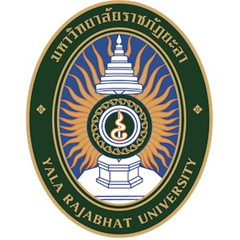Mini Conference Class Based-Learning Toward University Students’ Critical Thinking Development in Efl Classroom
DOI:
https://doi.org/10.30983/mj.v1i1.5185Abstract
References
Acai, Anita, et all. (2013). Exploring the Role of the University Students as an Experiential Learner: Thoughts and Reflections from 2013 Cohort of 3m National Students Fellow. Students Fellows Feature Article, 2 (2013).
Chinedu, C.C., Kamin, Y. (2015). Strategies for Improving Higher Order Thinking Skills in Teaching and Learning of Design and Technology Education. JTET. 7 (2), p36.
Hadi, Samsul et al. (2018). The Difficulties of High School Students in Solving Higher-Order Thinking Skills Problems. The Journal of Problems of Education, 76(4), 521. httpswww.gsa.govcdnstaticVarious_conference_definitions_508.pdf, retrieved on October 29, 2018.
https://www.gsa.govcdnstaticVarious_conference_definitions_508.pdf, retrieved in October 29, 2018.
Kakar, Ahmad Fawad et al. (2020). Creative Teaching in EFL Classrooms: Voices from Afghanistas. Journal of Foreign Language Teaching and Learning, 5 (2), p159 (2020)
Mainali,Bhawan Prasad .(2012). Higher Order Thinking in Education. A Multidiciplinary Journal, 2 (1), 6.
S. Ahmad, et al. (2017). The Instruments of Higher Order Thinking Skills. Journal of Physics: Conference Series, 943 (2017) 012053, 2.
Sivilotti, Paolo A. G and Weide, Bruce W. (2004). Research, Teaching, and Service: the Mini Conference as a Model for CS Graduate Seminar Course. SIGCSE, p2 (2004)
Tipka, Bradley, 2005. The Mini Conference: Crating Localized Opportunities for Professional Development. English Teaching Forum, 43(4), 35.
Downloads
Published
How to Cite
Issue
Section
Citation Check
License
Authors who publish with this journal agree to the following terms:
- Authors retain copyright and grant the journal right of first publication with the work simultaneously licensed under a Creative Commons Attribution License that allows others to share the work with an acknowledgment of the work's authorship and initial publication in this journal.
- Authors are able to enter into separate, additional contractual arrangements for the non-exclusive distribution of the journal's published version of the work (e.g., post it to an institutional repository or publish it in a book), with an acknowledgment of its initial publication in this journal.
- Authors are permitted and encouraged to post their work online (e.g., in institutional repositories or on their website) prior to and during the submission process, as it can lead to productive exchanges, as well as earlier and greater citation of published work (See The Effect of Open Access).




